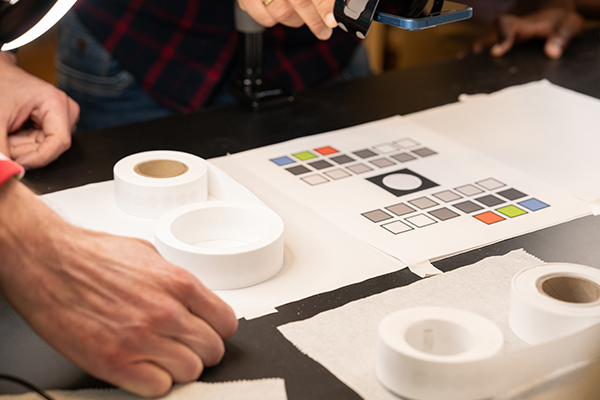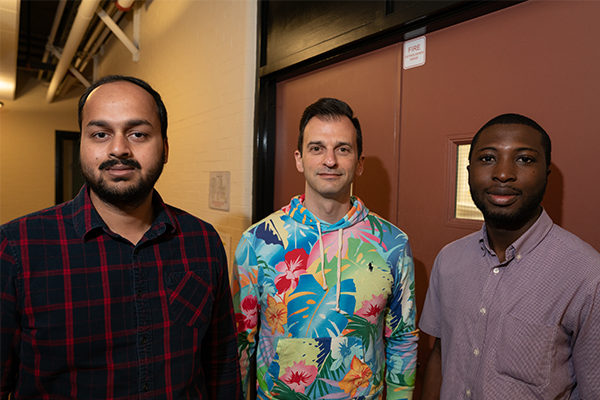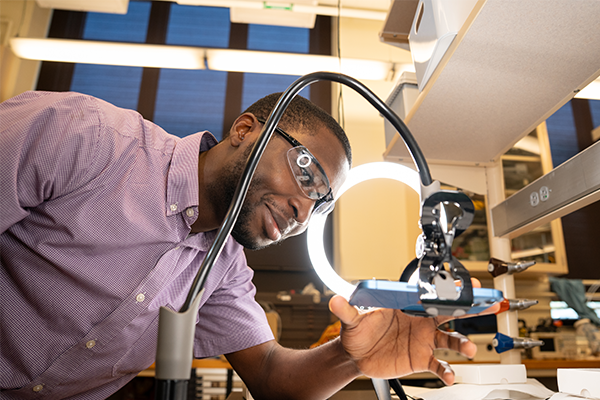Improving air quality worldwide
Hope Reveche
Aug 20, 2024
After Richard Djarbeng earned his undergraduate degree in computer engineering from the University of Ghana, he sought an opportunity to apply the skills he learned and continue the type of work he was doing throughout undergrad. He was accepted to Carnegie Mellon University Africa, which allowed him to take classes that combined his interests of software engineering, robotics, and machine learning as a part of the master’s program in electrical and computer engineering. Richard recently graduated from CMU-Africa as part of the Class of 2024.
One of the opportunities Richard was able to secure during his time at CMU-Africa was an internship with an air quality monitoring network called AfriqAir. The CMU-Africa affiliated group focuses on bringing together global researchers to improve knowledge about air quality in Africa. Working at the Kigali Collaborative Research Center, Richard designed and built a wireless data-logger that automated the collection of air quality data.
Richard expanded his horizons even further by applying to CMU-Africa’s student exchange program. "When I applied to the exchange program, I reached out to Albert Presto, an associate professor of mechanical engineering, who I had met previously in Kigali. We talked about various research options, and eventually, he agreed I could work with him," he said.
Presto acts as the director of the Center for Atmospheric Particle Studies (CAPS) at Carnegie Mellon—one of the world’s leading research centers focused on particulate matter and its effects on global climate and public health. Much of Presto’s research is focused on understanding and improving air quality, including across the African continent.
During his semester in Pittsburgh, Richard worked with Presto on a project to develop a new way to measure black carbon (BC) concentrations using smartphones. Typically measured with a device called an Aethalometer, BC concentrations can provide information about pollutants and their makeup. "If you’re able to extract BC concentrations, you can determine which part of the pollutants comes from fossil fuels and which part comes from biomass burning or wood smoke. Once you do that, this can drive things like policy change," Richard said.
Pictures of the Aethalometer readings are first collected here in Pittsburgh by Abshihek Anand, a Ph.D. student on Presto’s team, with devices placed over the city including in the Squirrel Hill Tunnel and in the lab. After these pictures are taken, Richard goes in to analyze the data, using red, green, and blue channels to measure absorption, and then uses an algorithm to organize by type of pollution.
"The most interesting part of the work is always having someone to talk to and run ideas by. The Ph.D. and master’s students, even the professors like Albert, are very busy, but they make time to talk to and encourage you," Richard said.
Richard expressed that he is thankful for his time at CMU-Africa and how it has opened his eyes to the many potential industries he could enter. "Before coming here, I had a pretty limited set of options that I was exploring. But then, I spoke with Ph.D. students and faculty and took different courses, which has helped me realize that there is a diverse range of fields to consider," he said.


